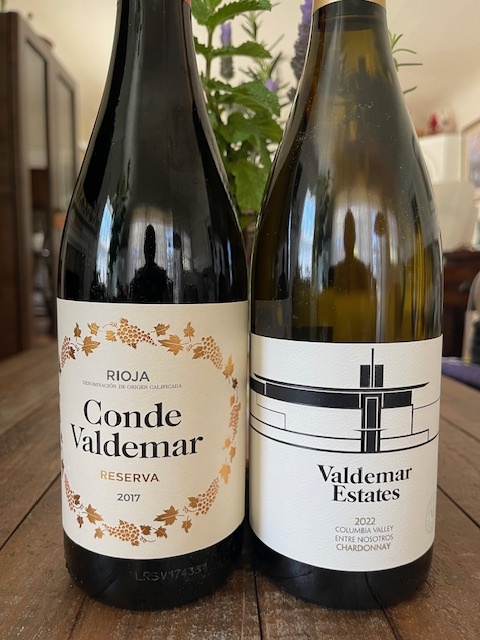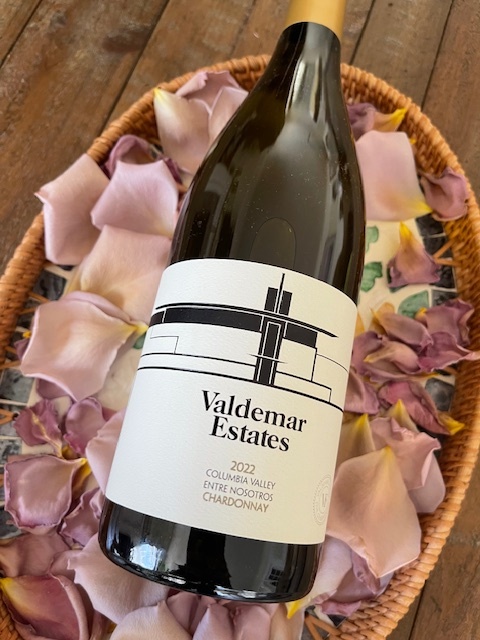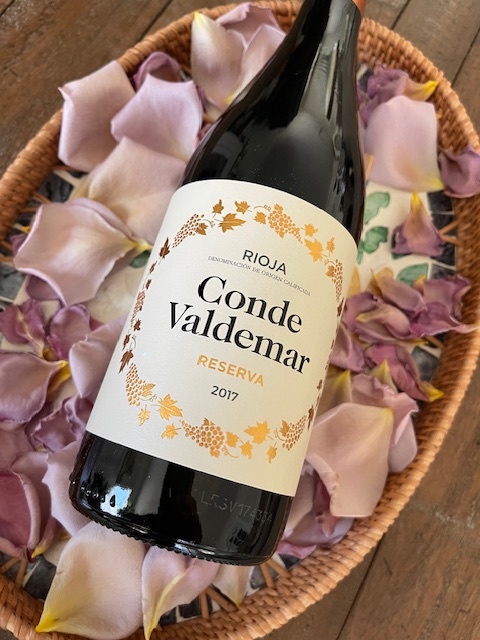Each year, Earth Day invites us to pause and reflect on our relationship with the planet—and how we might become better stewards of it. For me, that reflection took on new meaning during the height of the pandemic, when I tuned into a series of Jackson Family Wines’ masterclasses titled #RootedforGood: Fostering a Sustainable Future for the Wine Industry. Those virtual sessions were a revelation. For the first time, I connected the dots between wine and sustainability—not only in terms of environmental impact, but also as a broader commitment to community, stewardship, and legacy.
One quote from the series has stayed with me ever since:
“Any of us that have spent time directing our efforts at climate action and social responsibility very quickly realized they come together. There is no way to work on one, without ensuring you’re working on both.”
— Elaine Chukan Brown, award-winning wine writer and educator
That insight has stuck with me and reshaped the way I think about wine. I’ve always sought out bottles that bring joy, expression, and a sense of place. But now, I’m just as drawn to the stories behind those bottles—especially when they’re rooted in a deep respect for the planet and future generations.
This year, for the first time, I’m honoring Earth Day by sharing a story that exemplifies that commitment: the Valdemar Family, their Sustainability 360° initiative, and the two wines that brought their mission to life in my glass.
A Legacy Rooted in Innovation: The Valdemar Family
The legacy Martínez Bujanda family began in 1889 on a narrow track of land in village of Oyón in La Rioja, Spain. Today, fifth-generation siblings Ana and Jesús Martínez Bujanda lead the family’s two estates: Bodegas Valdemar in Rioja and Valdemar Estates in Walla Walla, Washington.
Across 334 hectares of family-owned vineyards, the Valdemar Family has earned a reputation for pushing boundaries while honoring their roots. Their pioneering achievements include creating the first barrel-fermented white Rioja, producing Spain’s first varietal wines from Maturana and White Tempranillo, and crafting both a sparkling Gran Añada and a still Viñedo Singular from the same vineyard—an unprecedented distinction in Rioja.
At the heart of their Spanish estate is Conde Valdemar, a flagship brand enjoyed in more than 65 countries. Alongside this global favorite, the family also produces a range of single-vineyard and iconic Rioja wines that speak to the soul of the region.
In 2019, the Valdemar Family became the first European winery to establish a fully owned estate in Washington State with the launch of Valdemar Estates. Just like its Spanish counterpart, the Walla Walla winery reflects the family’s ongoing commitment to accessibility, inclusion, and a sense of place—producing acclaimed wines that highlight the distinctive terroir of the Pacific Northwest.
Wines Tasted
Disclosure: Wines were provided as a media samples. No other compensation was received. All opinions are mine.

2022 Valdemar Estates Entre Nosotros Columbia Valley Chardonnay
Fruit for this wine sourced from 4 Columbia Valley vineyards – Gamache, French Creek, Olsen and DuBrut. 100% Chardonnay raised in in 20% new and 80% used French oak for 9 months.
Tasting note: Pale yellow with inviting baked pear, white blossom, vanilla, oak spice, lemon curd and pie crust aromas. On the palate it’s medium-bodied with vibrant mouth-watering zesty acidity and flavors of ripe pear, lemon zest passion fruit,subtle green mango, vanilla and oak spice. Very satisfying finish. 100% Chardonnay raised in 20% new and 80% used French oak for 9 months. 13.4% abv|SRP – $40|89pts
2017 Bodegas Valdemar Conde Valdemar Reserva
This wine is a blend of 80% Tempranillo,10% Mazuelo, 6% Garnacha, and 4% Maturana from vineyards situated in Rioja Alavesa and Rioja Alta planted on clay-limestone and limestone soils.
Tasting note: Medium garnet color with lifted cherry, ripe plum, cured meat, cedar, leather, vanilla, balsamic and sweet spice aromas. On the palate, it’s medium-bodied with bright acidity and well-integrated velvety tannins with flavors of sour cherry, plum, vanilla, cacao, pepper and dried herbs. Long finish. 14% abv|$28.99|90pts
Sustainability 360°: A Holistic Vision
The Valdemar Family’s approach to sustainability isn’t confined to vineyards—it’s woven into everything they do. Their Sustainability 360° initiative is a comprehensive, self-directed framework that addresses four key pillars:
- Vineyard & Winery Practices: Focused on reducing carbon footprint, conserving water, enhancing energy efficiency, and promoting biodiversity.
- Social Responsibility: Uplifting their teams and community through inclusion, equity, and opportunity.
- Transparency & Accountability: Embracing certifications like Spain’s Wineries for Climate Protection (WfCP) and pursuing continued evolution.
- Cultural Connection: Promoting accessibility, education, and respect for the places and people that shape their wines.
It’s not a checklist—it’s a living, evolving commitment to doing better across the board.
How Sustainability 360° Compares
There are many roads to sustainability in wine. Here’s how Sustainability 360° stands alongside other leading frameworks:
- Biodynamic Farming: Rooted in holistic, spiritual agriculture. Follows lunar cycles and homeopathic soil preparations. Treats the farm as a self-sustaining ecosystem.
- Regenerative Organic Certified (ROC): Prioritizes soil health, animal welfare, and fair labor practices. Emphasizes carbon sequestration and long-term land vitality.
- Certified Organic: Limits synthetic inputs and emphasizes natural vineyard management, without necessarily addressing broader environmental or social factors.
While Sustainability 360° is less prescriptive, its flexibility and inclusivity allow it to evolve and respond to real-time needs—balancing environmental impact with social equity and economic resilience. Importantly, there’s meaningful overlap among these models, especially in their shared commitment to soil health and biodiversity—core to both biodynamic and regenerative farming.
How the Wine Industry Can Help Save the Planet
As climate change continues to reshape agriculture, winegrowers are uniquely positioned to lead. Practices like regenerative, biodynamic, and organic farming don’t just reduce harm—they help repair ecosystems.
Central to this is carbon sequestration—the process of capturing atmospheric CO₂ and storing it in the soil. Healthier soils do more than nurture resilient vines and expressive wines. They have real climate impact.
**Regenerative farming could sequester up to 1.5 gigatons of CO₂ annually—equivalent to 15% of global emissions.**¹
When sustainability is at the heart of viticulture, wine becomes a regenerative act—nourishing the land, uplifting communities, and preserving terroir for generations to come.
Final Thoughts
Valdemar’s commitment to sustainability doesn’t just enhance their wines—it deepens the story behind every bottle. It’s a reminder that the choices made in the vineyard and winery can ripple outward, shaping not only the taste in your glass but the future of our planet.
This Earth Day, I encourage you to seek out wines that align with your values. Support producers like the Valdemar Family who are leading with heart, innovation, and a commitment to something bigger than themselves.
Because wine, at its best, is a celebration of life—and there’s no better time to raise a glass to the planet that makes it all possible.
If you are interested in learning more about climate action and what you can do, please find the following resources: International Wineries for Climate Actions, Race to Zero, and We can fix it .
Sources and resources:
¹ Source: Project Drawdown, “Regenerative Annual Cropping,” 2020. https://drawdown.org/solutions/regenerative-annual-cropping


Insightful article Martin! In our early wine days, we drank a lot of Valdemar’s classic red from Rioja, but it pretty much stopped there. Love this ‘first ever’, which incites me to seek out their wines, especially their Viñedo Singular and finca wines. Happy Earth Day!